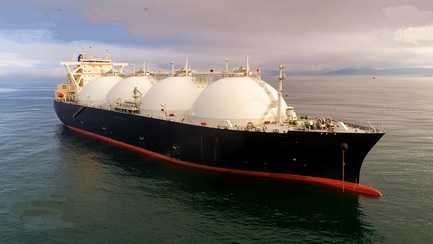
15 Jan 2023; MEMO: The Qatari and Emirati energy ministers have warned that the world will have more of a need for natural gas in the near future, amid an increasing energy crisis and the ongoing green transition.
Speaking in a panel at the Atlantic Council Global Energy Summit today,
Qatar's state minister for energy, Saad al-Kaabi, said that despite the mild winter Europe had experienced over the past few months having resulted in decreased energy prices, volatility in the market would remain "for some time to come" as it will not receive much gas until 2025.
"The issue is what's going to happen when they [Europe] want to replenish their storages this coming year and the next year," he warned. Al-Kaabi also told reporters that Qatar has limited volumes of liquified natural gas (LNG) going to Europe that it would not divert away, "but there is a limit to what we can do."
He added that Qatar – which is still working to expand its gas output – has been in negotiations with many other players around the world, but that supplies are not unlimited. "There are a lot of European and Asian buyers, and there is a potential that by the end of the year, the entire Qatar expansion will be sold out," al-Kaabi said.
Read: As the West commits energy suicide in its green transition, it exploits the Gulf
The Qatari energy minister notably expressed his belief that European and Western nations would have to return to accepting Russian gas, which they have refused to import since last year following Russia's ongoing invasion of Ukraine.
He also criticised the consequences of the green energy transition, in which some Western nations are pressuring African and developing nations not to drill for oil and gas at a time when domestic energy production is essential to their economies and to the world at large. Such pressure, he asserted, is unfair.
The United Arab Emirates' (UAE) energy minister, Suhail al-Mazrouei, agreed with his Qatari counterpart that "for a very long time, gas will be there" and that ever more investment into natural gas as a base load is needed while renewable energy methods continue to be installed and developed – a transition which requires more time.
"The whole world needs to think of resources and how to enable companies to produce more gas to make it available and affordable," al-Mazrouei said. He also criticised many countries' "unclear" strategy which is making it difficult for them to commit to long-term gas contracts, which has consequently made it difficult for energy companies to secure financing to invest in the development of production capacity.




